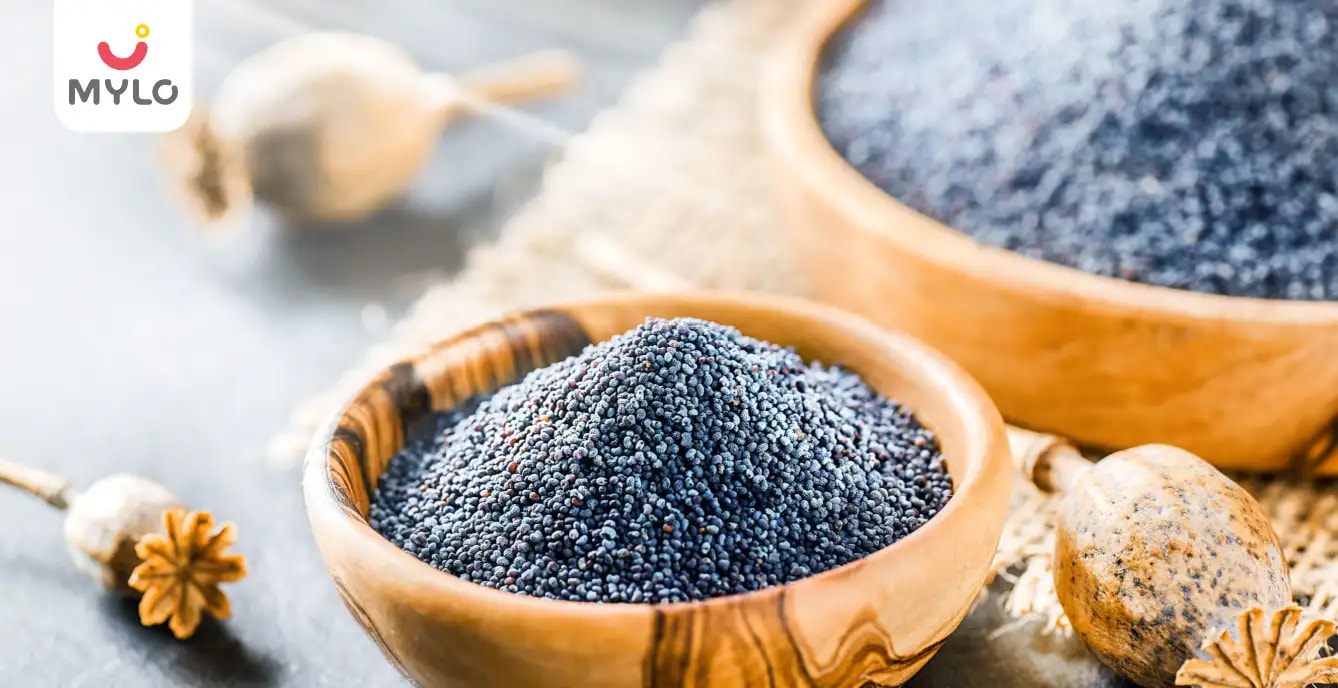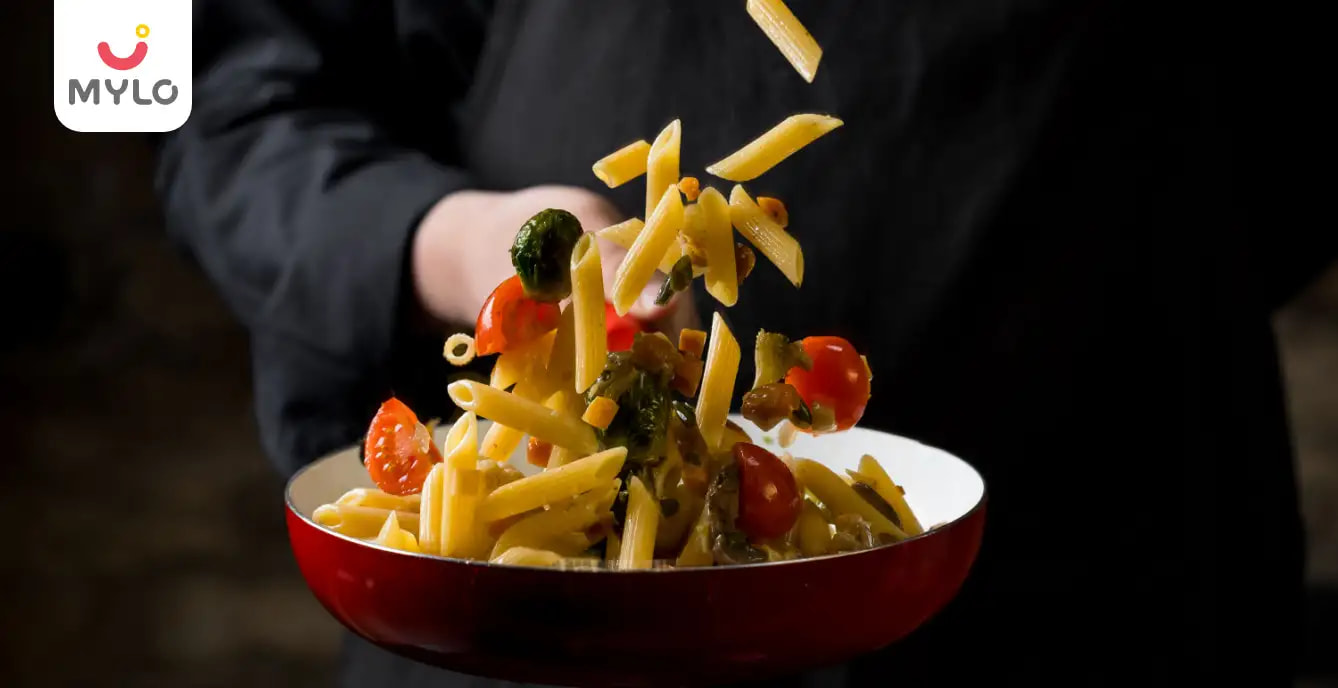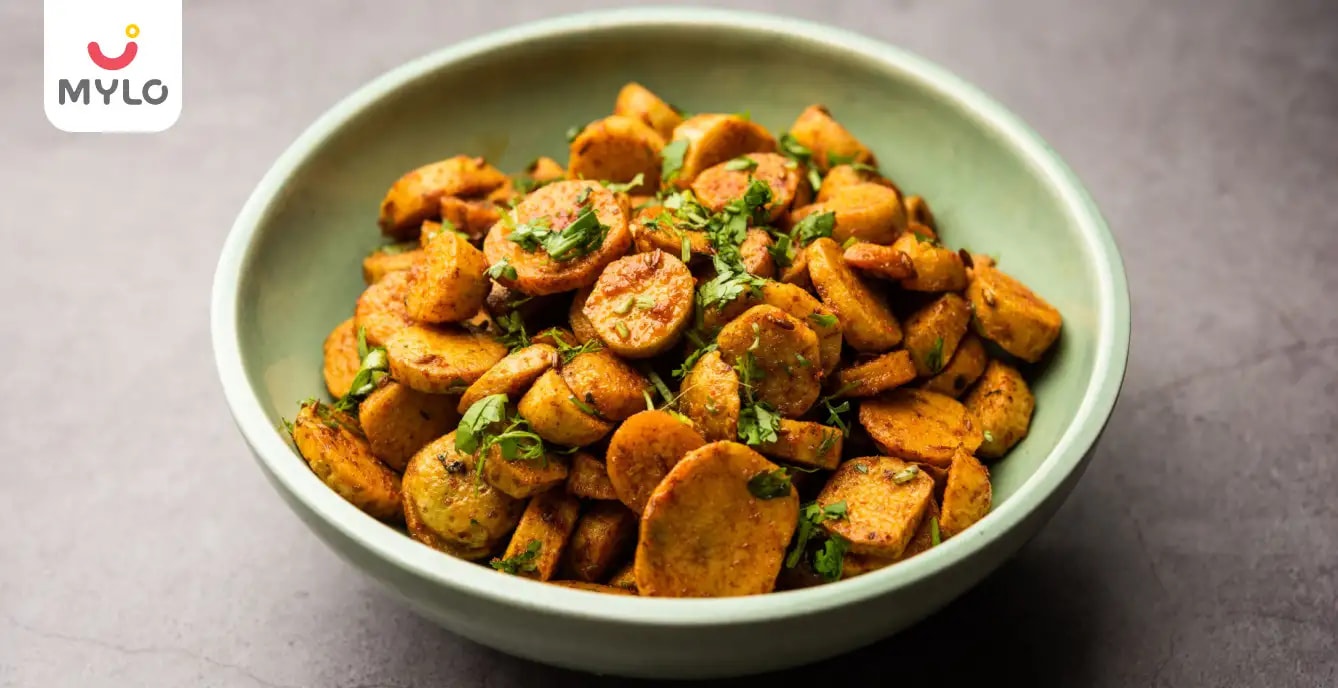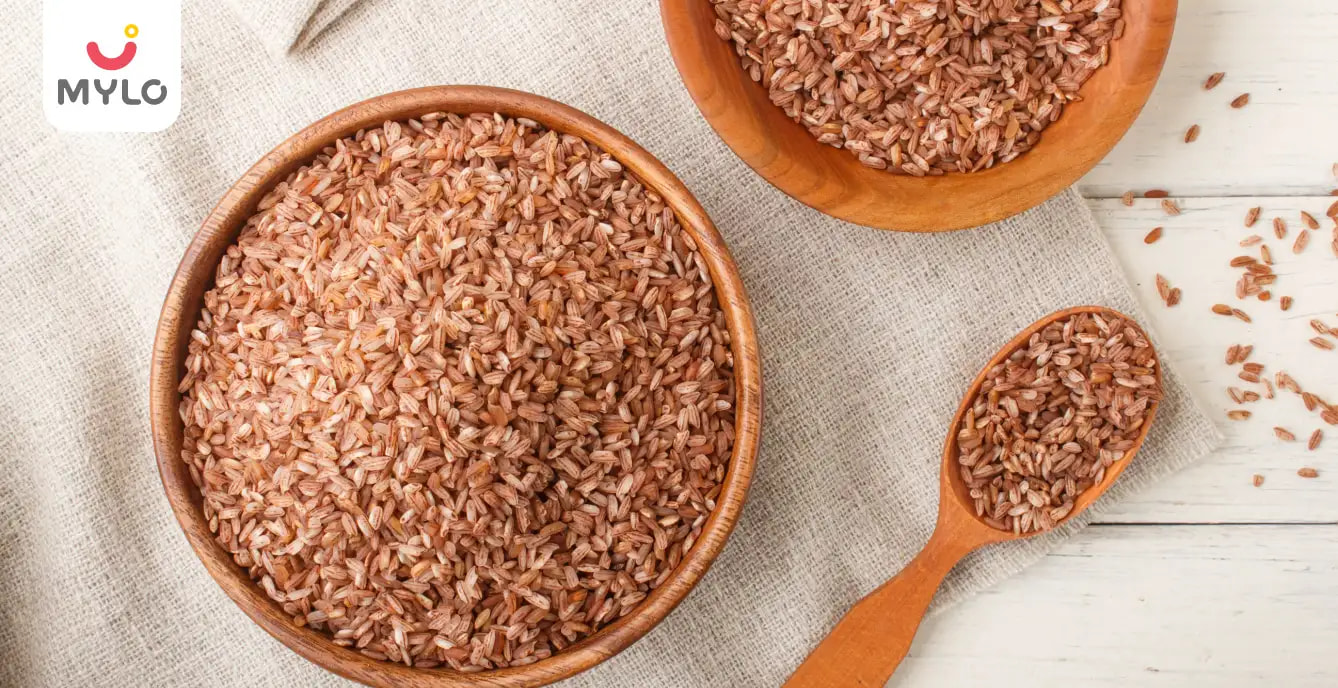Home

The Ultimate Guide to Consuming Mushroom in Pregnancy
In this Article
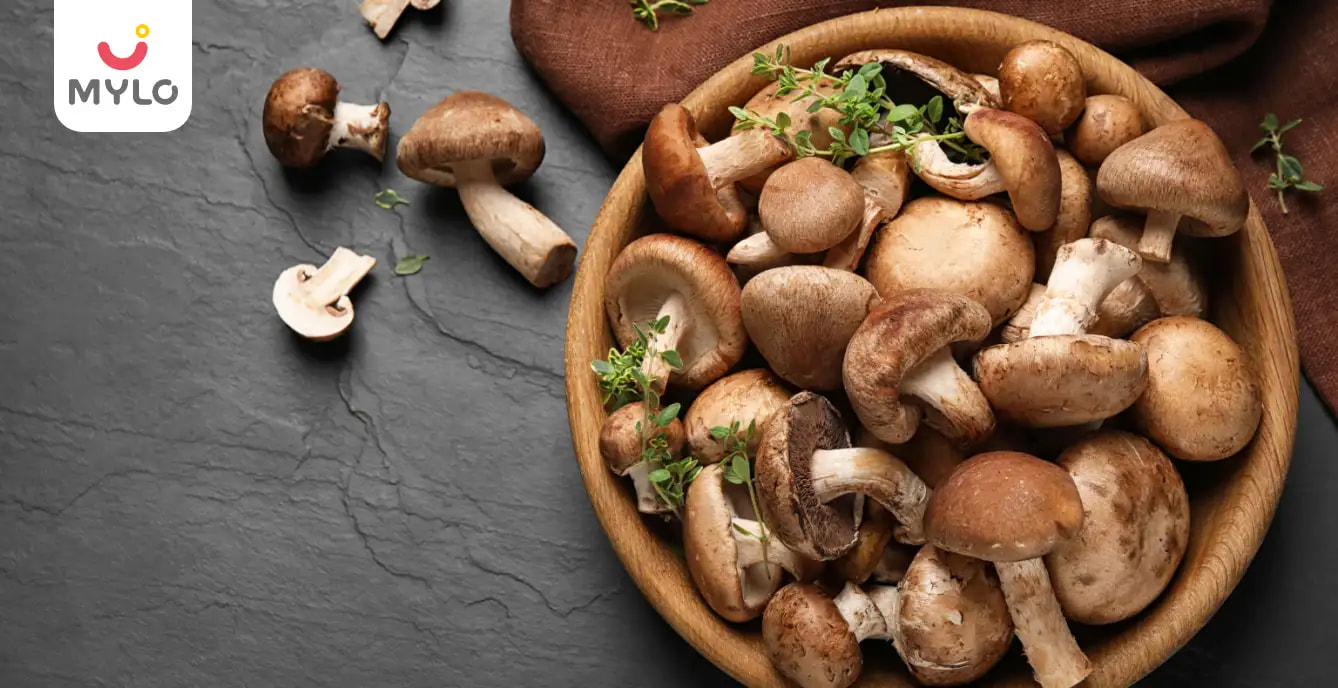
Pregnancy Best Foods
The Ultimate Guide to Consuming Mushroom in Pregnancy
Updated on 24 January 2024
Mushrooms are a popular ingredient in many dishes due to their unique taste and texture. However, when it comes to pregnancy, many women are unsure about whether it is safe to consume mushroom in pregnancy. In this article, we will explore the nutritional value of mushrooms, discuss whether they are good during pregnancy, identify safe types of mushrooms to consume, highlight their benefits and address any potential risks.
Nutritional value of mushrooms
Mushrooms are not only delicious but also packed with essential nutrients such as:
- Vitamin D: Mushrooms can be a natural source of vitamin D, especially when they are exposed to sunlight or UV light during growth.
- B vitamins: Mushrooms contain various B vitamins such as riboflavin (B2), niacin (B3), pantothenic acid (B5), and biotin (B7).
- Selenium: Mushrooms are one of the best non-animal sources of selenium, an essential mineral with antioxidant properties.
- Potassium: Mushrooms are a good source of potassium, which is important for heart health and muscle function.
- Copper: They also contain copper, which is necessary for producing red blood cells and maintaining healthy bones and nerves.
- Protein and Fiber: Mushrooms are a source of dietary fiber and provide a small amount of protein as well.
- Antioxidants: Mushroom is rich in ergothioneine, a naturally occurring antioxidant that may help protect the body's cells.
- Carbohydrates and Low Calories: Mushrooms are low in calories and carbohydrates, making them a good option for those on a low-calorie or low-carb diet.
You may also like: Sweet Potato During Pregnancy: Benefits, Risks & Side Effects
Is mushroom good in pregnancy?
Many women wonder can I eat mushroom during pregnancy. The good news is that mushrooms are generally considered safe to eat during pregnancy. However, it is essential to ensure that they are properly cooked to eliminate any potential harmful bacteria or parasites that may be present.
Raw or undercooked mushrooms can pose a risk of foodborne illnesses, so it is recommended to cook them thoroughly before consumption. By cooking mushrooms until they are tender and fully cooked, you can enjoy their nutritional benefits without worrying about any potential risks.
Safe types of mushroom during pregnancy
While mushrooms, in general, are safe to consume during pregnancy, it is important to be aware of certain types that may not be suitable. For example, some wild mushrooms can be toxic and should be avoided altogether. It is best to stick to commercially cultivated mushrooms that are readily available in grocery stores.
Common types of mushrooms that are considered safe for consumption during pregnancy include button mushrooms, cremini mushrooms, shiitake mushrooms, and oyster mushrooms. These varieties are widely used in cooking and are less likely to cause any adverse effects during pregnancy.
You may also like: Fish in Pregnancy: Benefits & Risks
Mushroom benefits during pregnancy
Eating mushroom during pregnancy can provide numerous benefits for both the mother and the baby. Here are seven notable benefits of mushroom during pregnancy:
1. Rich in essential nutrients
Mushrooms are a great source of vitamins and minerals necessary for the healthy development of the baby, such as folate, iron, and zinc.
2. Boosts immune system
The immune system can be weakened during pregnancy, but mushrooms contain compounds that help strengthen the immune system, protecting both the mother and the baby from harmful infections.
3. Maintains healthy digestion
Mushrooms are high in dietary fiber, which aids in digestion and prevents constipation, a common issue during pregnancy.
4. Regulates blood sugar levels
The low glycemic index of mushrooms helps regulate blood sugar levels, reducing the risk of gestational diabetes.
5. Supports brain development
The presence of B vitamins, particularly vitamin B6, in mushrooms promotes healthy brain development in the fetus.
6. Improves mood
Mushrooms contain compounds that have been linked to improved mood and reduced feelings of anxiety and depression.
7. Helps prevent birth defects
The high folate content in mushrooms plays a crucial role in preventing neural tube defects and other birth defects.
Risks of eating mushroom in pregnancy
While there are numerous mushroom benefits during pregnancy it is important to be aware of potential risks associated with their consumption during pregnancy. Here are five risks to consider:
1. Foodborne illnesses
Raw or undercooked mushrooms can harbor harmful bacteria or parasites, posing a risk of foodborne illnesses and food poisoning.
2. Allergic reactions
Some individuals may be allergic to mushrooms, and allergic reactions during pregnancy can be particularly concerning. If you have a known mushroom allergy, it is best to avoid them altogether.
3. Toxic wild mushrooms
Certain wild mushrooms can be toxic and may cause severe health issues if consumed. It is crucial to avoid foraging for wild mushrooms during pregnancy and only consume commercially cultivated varieties.
4. Potential pesticide exposure
Conventionally grown mushrooms may contain pesticide residues. To minimize exposure, opt for organic or locally sourced mushrooms whenever possible.
5. Interaction with medication
If you are taking any medication during pregnancy, it is essential to consult your healthcare provider to ensure that consuming mushrooms does not interfere with the effectiveness or safety of your medication.
You may also like: Drumstick During Pregnancy: Benefits & Side Effects
Tips for selecting and preparing mushroom during pregnancy
When it comes to selecting and preparing mushrooms, here are five important tips to keep in mind before eating mushroom during pregnancy:
1. Choose fresh and firm mushrooms
Look for mushrooms that are firm to the touch and have a fresh appearance. Avoid those with bruised or slimy spots.
2. Clean them properly
Rinse the mushrooms under cool running water to remove any dirt or debris. Avoid soaking them, as mushrooms tend to absorb water, which can affect their texture and taste.
3. Cook them thoroughly
To eliminate any potential bacteria or parasites, cook mushrooms thoroughly until they are tender and fully cooked. Avoid eating raw or undercooked mushrooms during pregnancy.
4. Store them properly
Keep mushrooms refrigerated and consume them within a few days of purchase. Discard any mushrooms that show signs of spoilage, such as a foul smell or sliminess.
5. Experiment with different recipes
Incorporate mushrooms into a variety of dishes to enjoy their unique flavor and texture. From stir-fries to soups and pasta dishes, the possibilities are endless.
You may also like: Pasta During Pregnancy: The Ultimate Guide on Nutritional Value, Benefits & Risks
FAQs
1. Can I eat mushroom during pregnancy?
Consuming properly washed and thoroughly cooked mushrooms in moderation as part of a well-balanced diet is advisable during pregnancy. However, it's best to consult a doctor for personalized dietary guidance regarding any dietary restrictions during pregnancy.
2. Is it safe to eat button mushroom during pregnancy?
Yes, it is safe to consume button mushrooms during pregnancy. They are a common variety found everywhere and can be recognized by their pale white shoot with a spotted top. Button mushrooms are flavorful and can be used to make delicious dishes to add to a healthy diet.
Key Takeaways
In conclusion, consuming mushroom in pregnancy can be a healthy and delicious addition to your diet. They are packed with essential nutrients, support the immune system, aid in digestion, and promote healthy brain development in the fetus. However, it is important to choose safe types of mushrooms, cook them thoroughly, and be aware of any potential risks or allergies. By following these guidelines and consulting with your healthcare provider, you can safely enjoy the benefits of mushroom during pregnancy.
References
1. Sun L, Niu Z. (2020). A mushroom diet reduced the risk of pregnancy-induced hypertension and macrosomia: a randomized clinical trial. Food Nutr Res.
2. Kenny LC; SCOPE Consortium; Brown LW, Ortea P, Tuytten R, Kell DB. (2023). Relationship between the concentration of ergothioneine in plasma and the likelihood of developing pre-eclampsia. Biosci Rep.



Written by
Anupama Chadha
Anupama Chadha, born and raised in Delhi is a content writer who has written extensively for industries such as HR, Healthcare, Finance, Retail and Tech.
Read MoreGet baby's diet chart, and growth tips

Related Articles
Related Questions
Hello frnds..still no pain...doctor said head fix nhi hua hai..bt vagina me pain hai aur back pain bhi... anyone having same issues??

Kon kon c chije aisi hai jo pregnancy mei gas acidity jalan karti hain... Koi btayega plz bcz mujhe aksar khane ke baad hi samagh aata hai ki is chij se gas acidity jalan ho gyi hai. Please share your knowledge

I am 13 week pregnancy. Anyone having Storione-xt tablet. It better to have morning or night ???

Hlo to be moms....i hv a query...in my 9.5 wk i feel body joint pain like in ankle, knee, wrist, shoulder, toes....pain intensity is high...i cnt sleep....what should i do pls help....cn i cosult my doc.

Influenza and boostrix injection kisiko laga hai kya 8 month pregnancy me and q lagta hai ye plz reply me

Related Topics
RECENTLY PUBLISHED ARTICLES
our most recent articles
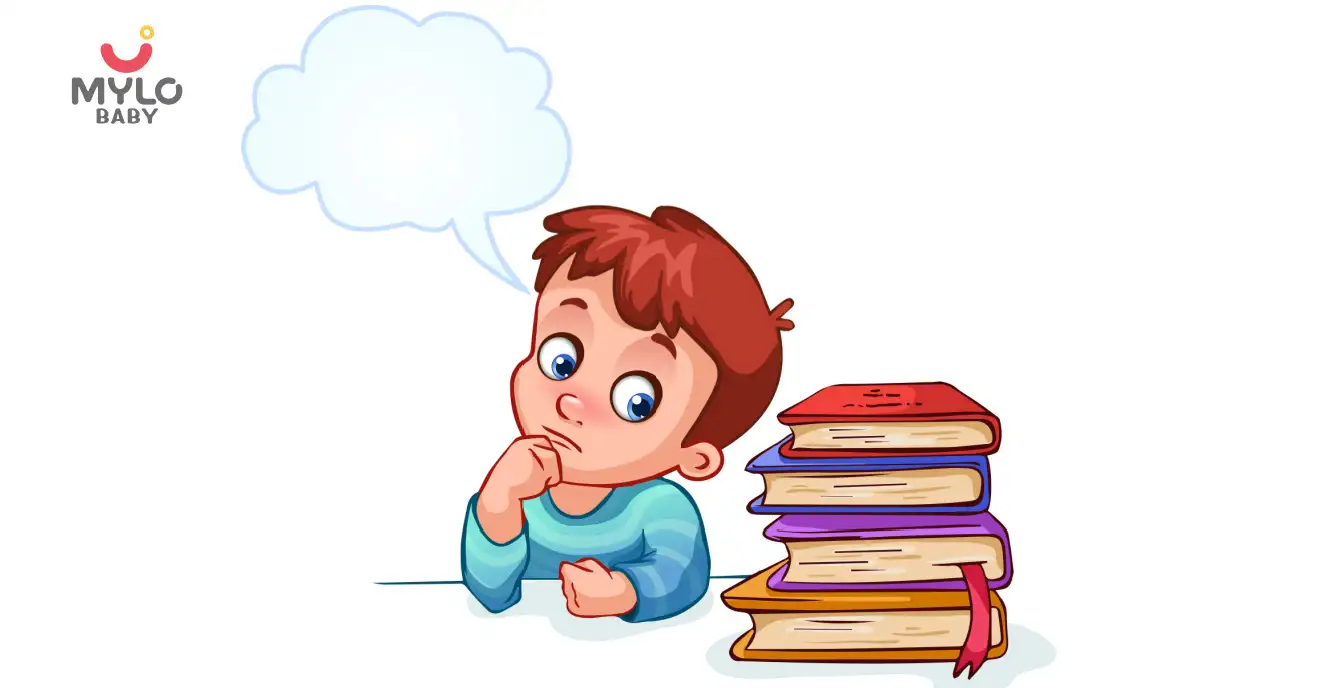
Education
The Ultimate Compilation of GK Questions and Their Answers

Education
The Ultimate Compilation of 2 Letter Words for Children
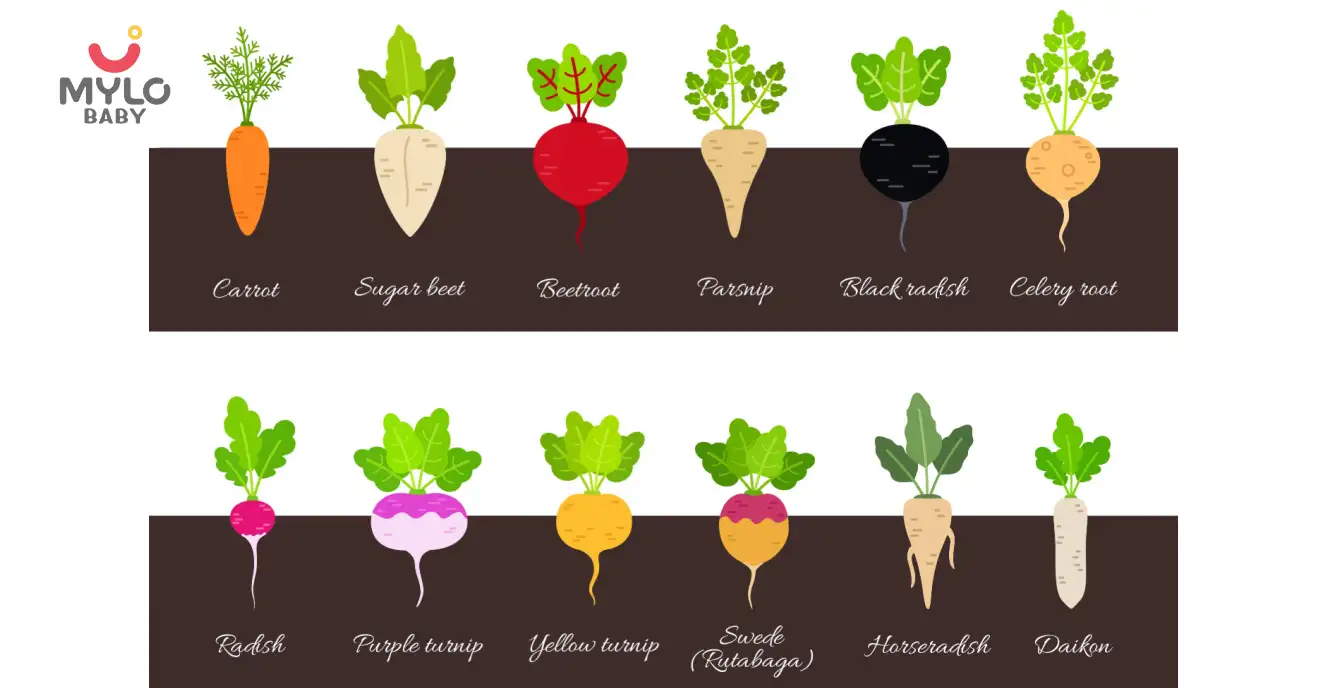
Education
The A-Z Guide to Identifying Root Vegetables Names for Kids

Education
11 to 20 Table: A Complete Overview for Children

Education
Tables 1 to 10: A Complete Overview for Children
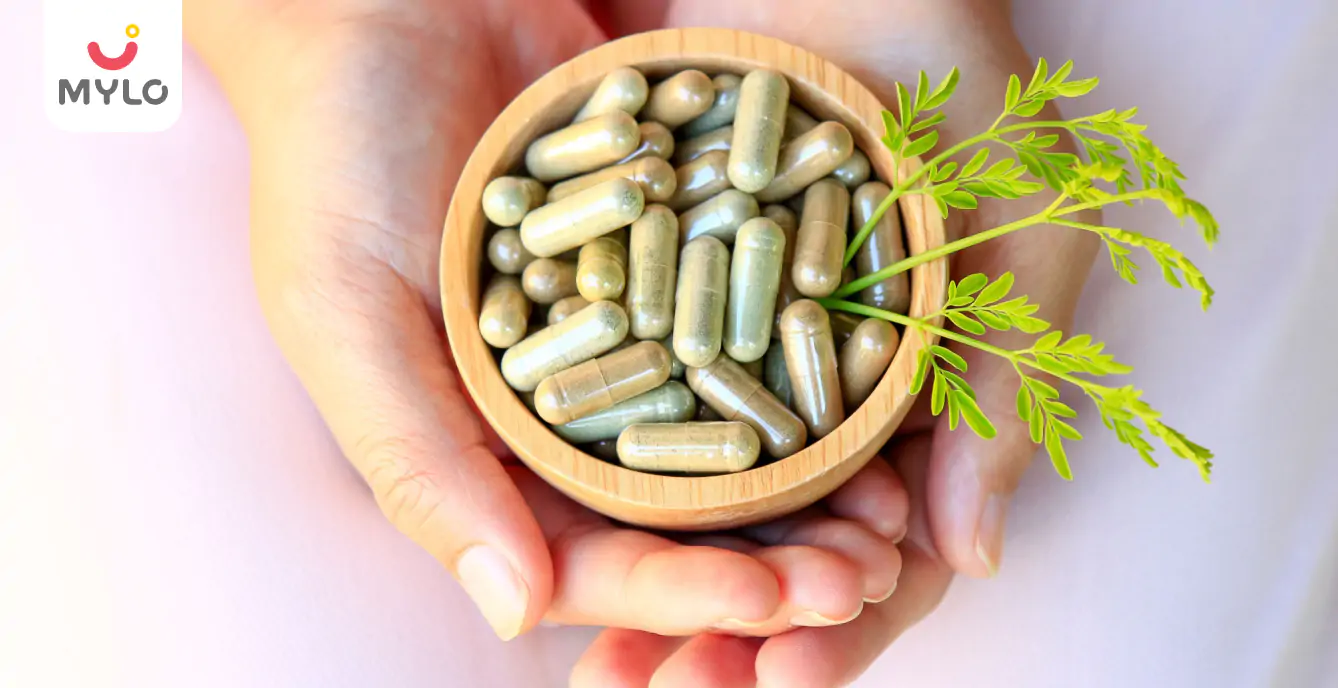
Vitamins & Supplements
Can Herbal Supplements Boost Your Chances of Getting Pregnant?
- Sesame Seeds in Pregnancy: Nutritional Value, Benefits & Side Effects
- Betnesol Injection in Pregnancy: The Ultimate Guide to Benefits and Risks
- Pradhan Mantri Matru Vandana Yojana (PMMVY) to Give Rs 5,000 to Pregnant Women
- The A-Z Guide to Identifying Green Vegetables Names for Kids
- Anjeer in Pregnancy: Benefits & Side Effects of Eating Figs
- Black Grapes During Pregnancy: Benefits & When to Avoid
- The Ultimate Guide to the Best Series on Hotstar- Hindi
- The Ultimate Guide to Teaching Children Tables 1 to 20
- Thought of the Day for Kids to Spark Imagination & Positivity
- 100 Thought of the Day to Brighten and Motivate Young Minds
- Orange in Pregnancy: Health Benefits, Side Effects & Precautions
- Radish in Pregnancy: Benefits and Safety Precautions
- Top 10 Pakistani Dramas That Will Keep You Hooked
- New Born Baby Astrology: What Does Your Baby's Zodiac Sign Say About Their Personality


AWARDS AND RECOGNITION

Mylo wins Forbes D2C Disruptor award

Mylo wins The Economic Times Promising Brands 2022
AS SEEN IN
















- Mylo Care: Effective and science-backed personal care and wellness solutions for a joyful you.
- Mylo Baby: Science-backed, gentle and effective personal care & hygiene range for your little one.
- Mylo Community: Trusted and empathetic community of 10mn+ parents and experts.
Product Categories
baby carrier | baby soap | baby wipes | stretch marks cream | baby cream | baby shampoo | baby massage oil | baby hair oil | stretch marks oil | baby body wash | baby powder | baby lotion | diaper rash cream | newborn diapers | teether | baby kajal | baby diapers | cloth diapers |



